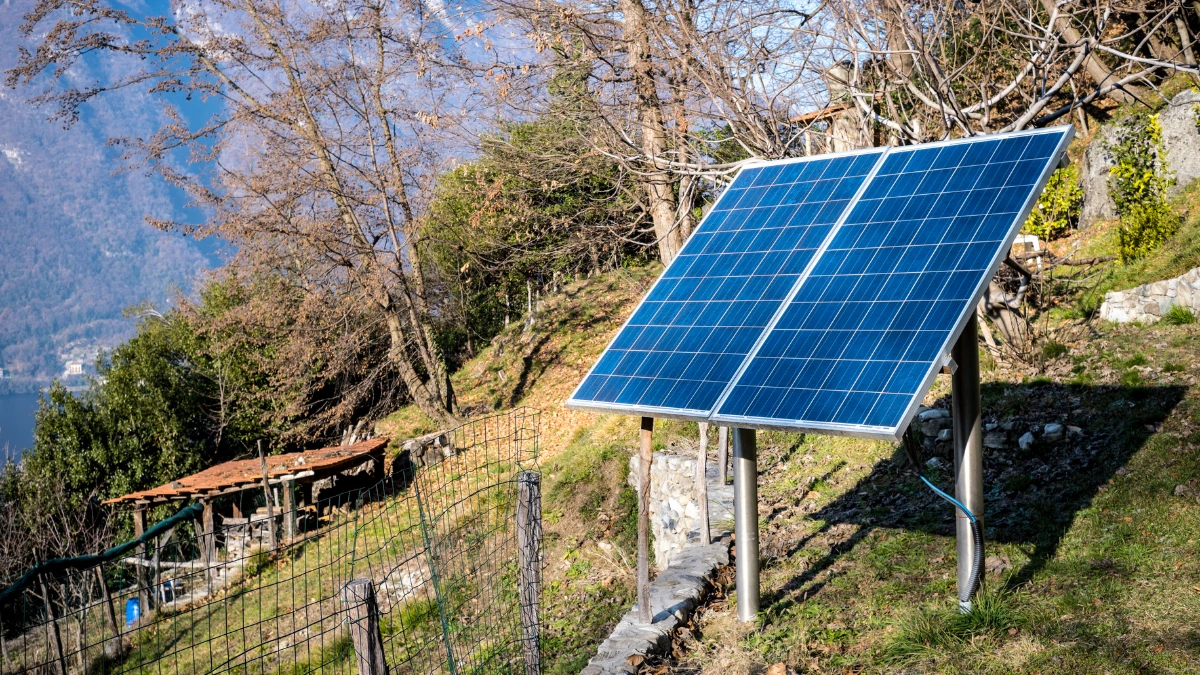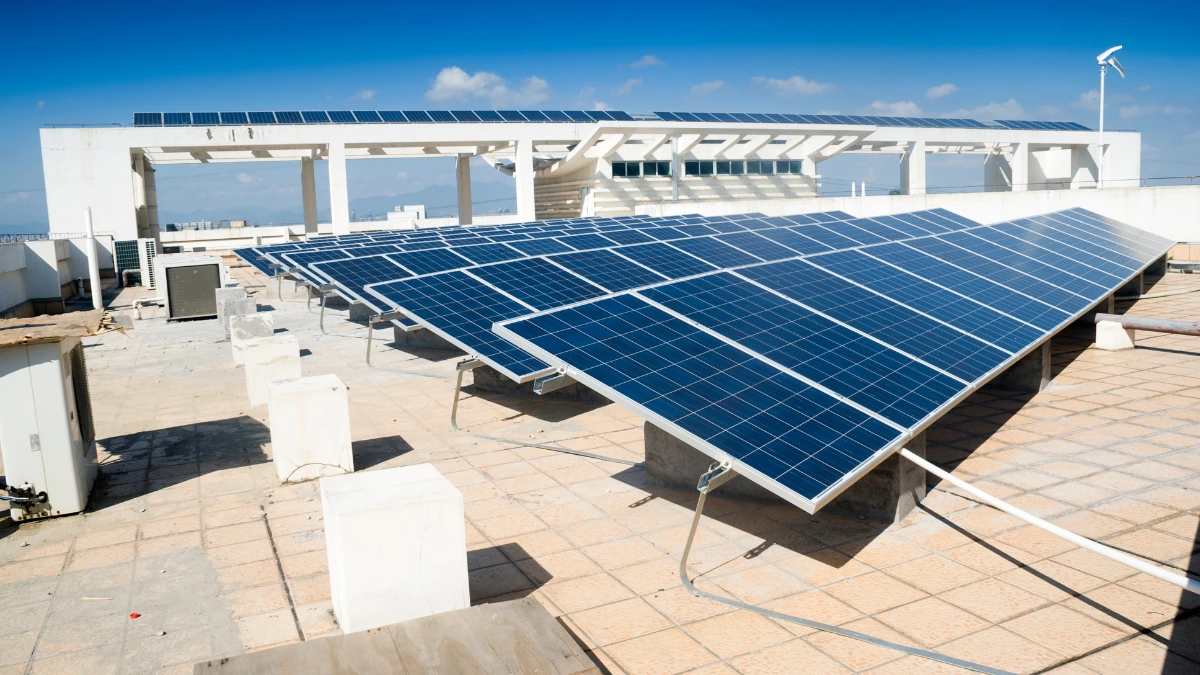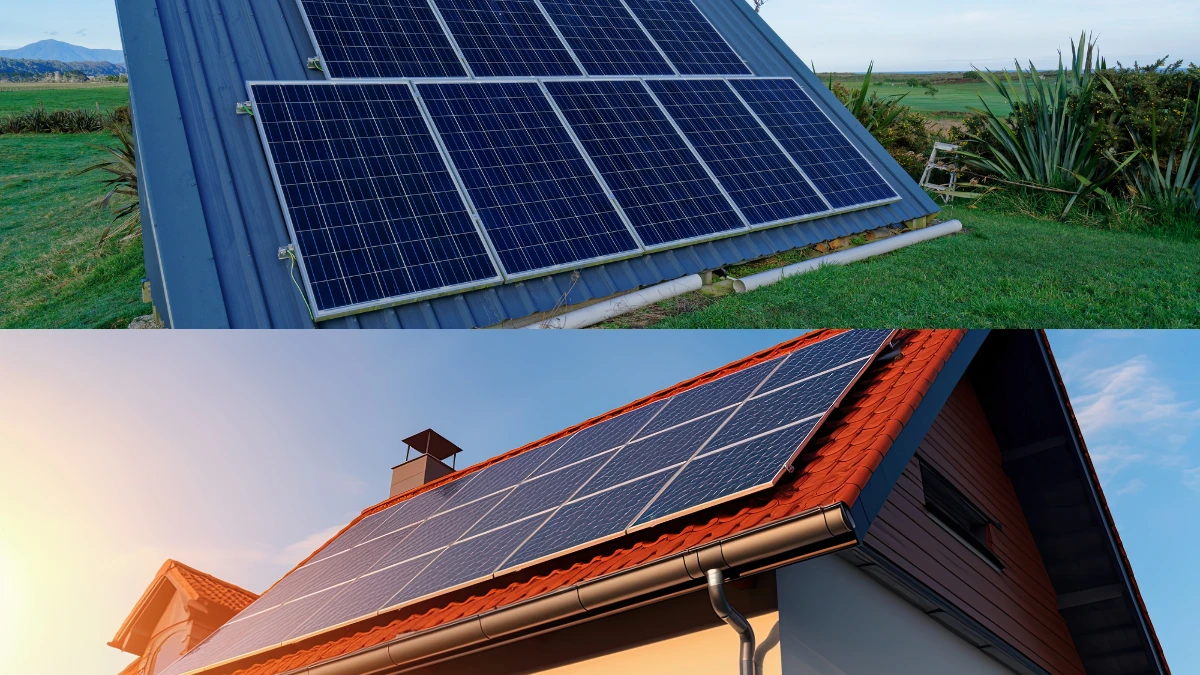Solar off-grid systems and solar on-grid systems are the keys to provide maximum energy use to increase productivity. Although both maximize sustainable energy, solar off-grid vs on-grid have some significant differences.
The differences between solar off-grid vs on-grid cover several aspects such as networking, battery, location of use, initial cost, maintenance cost, and potential increase in revenue.
This article will delve into the important differences between solar off-grid vs on-grid to provide maximum energy use.
What is a Solar Off-Grid System?

A solar off-grid system is a type of system that operates independently, so it is not connected to the public power grid. With solar panels, the system stores sunlight energy using batteries.
The energy stored in the battery allows it to be used at night or during cloudy weather. This system is suitable for locations far from the public power grid.
What is a Solar On-Grid System?

Solar on-grid system is a type of system that operates while still connected to the public grid. With this system, if there is excess energy from what has been used for household or business needs, it will be fed back to the public grid.
On-grid systems do not require batteries for storage, as the electrical energy used at night or during cloudy weather will be drawn from the public grid. However, users must be prepared for the system to shut down if there is a mainstream power outage.
The Difference of Solar Off-Grid vs On-Grid

Solar off-grid systems and solar on-grid systems are both used to provide maximum energy use to increase productivity, but they have some differences. Here are six clear differences between solar off-grid vs on-grid:
1. Network
Solar off-grid system: Does not rely on the public power grid, operates independently.
Solar on-grid system: Integrated with the public grid, can drain excess energy or draw electricity from the grid.
2. Battery
Solar off-grid system: Requires batteries to store the energy generated by the solar panels.
Solar on-grid system: Does not always require batteries, as excess energy can be fed into the grid.
3. Location of use
Solar off-grid system: Suitable for locations without grid access such as remote areas.
Solar on-grid system: Suitable for areas that already have a stable electricity grid.
4. Initial cost
Solar off-grid system: Requires a larger upfront investment in batteries.
Solar on-grid system: More affordable as it does not require batteries and is directly integrated with the public power grid.
5. Maintenance cost
Solar off-grid system: Requires intensive maintenance costs due to the presence of batteries.
Solar on-grid system: Does not require intensive battery maintenance.
6. Potential increase in revenue
Solar off-grid system: Cannot sell excess energy to the public grid.
Solar on-grid system: Can sell excess energy to the public grid by utilizing a net metering system.
Here are the differences between a solar off-grid systems and a solar on-grid systems in a nutshell:
| Aspect | Solar Off-Grid System | Solar On-Grid System |
| Network | Operates independently | Integrated with the public grid |
| Battery | Requires batteries to store the energy | Does not always require batterie |
| Location of use | For locations without grid access | For areas that already have a stable electricity grid |
| Initial cost | Yes, upfront investment | More affordable |
| Maintenance cost | Yes, for batteries | No, need |
| Potential increase in revenue | Cannot | Yes, can sell excess energy |
That’s the difference between solar off-grid vs on-grid that can be your consideration in choosing according to your personal needs.
If you need energy that is independent of the public power grid, a solar off-grid system is the right choice. However, if you need a more stable energy supply, you can choose a solar off-grid system. [UN]

